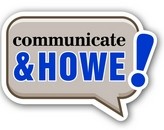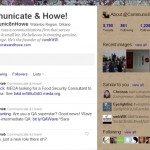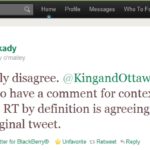I unfollowed the City of Waterloo on Twitter because they followed only a handful of accounts. I suggested that others join me and asked them to please share my tweet with their followers.
I wanted to get the city’s attention and send a message. I believe strongly that following other accounts on Twitter is an integral part of the platform and a key indicator of the value an account places on being present and social on that platform. I have a passion for social media and for Twitter and I want to encourage best practices that help people to experience the greatest benefits possible.
I hit a nerve.
Why I suggested unfollowing
Some people disagreed with my tactic. Maybe there might have been a different approach I could have taken. On the other hand, my tweet didn’t come out of the blue even if it seemed that way.
Step 1
A year ago, the City of Waterloo held a summer long promotion encouraging people to connect with its social media platforms. Last fall, I checked to see the campaign’s progress. It shocked me to see that the City wasn’t following anyone. Not a single account.
I had written a series of posts on how to get started on Twitter and an article (later a series of posts) on the fundamentals of social media. I talked about the importance of respecting the culture of a platform and being seen to be present on each. On Twitter, I said a sign of being present was following people.
So I looked at this as a teachable moment and tweeted the city to suggest they follow more people. I was assured they were listening and having conversations. I explained the importance of being present in a space and that following was an indicator of an account’s understanding that Twitter was a social space. I said that there must be at least some accounts they could follow. They thanked me for the advice and I saw that they did start following accounts.
By the spring, the city was following 24 accounts. A few city councillors on Twitter and the rest were all organizations-mostly public sector ones.
Step 2
A month or so ago, I saw a tweet from from one of my Twitter role models urging the city to follow more people. I retweeted her post. We got a polite thank you for the feedback.
Up until that point, the city had not followed any individuals who were not city councillors. To its credit, the city responded by starting to follow individuals-but only about 10 of them.
Because of that tweet, I knew then that others shared my belief that the city should beef up the number of accounts it followed.
Step 3
Then last weekend, I saw a tweet from the city encouraging people to talk to their neighbours as a form of community building. I went to retweet it but hesitated. I decided to check first to see if the city was practicing what it preached on Twitter and was following more people after my friend requested them to do so. I consider Twitter the greatest relationship building tool that exists and following to be fundamental to that process. So I looked at the city’s following count to see if it recognized twitter as a tool for building community.
I saw the city had 2900 followers and was only following 34 accounts. A year after I first approached them and after a respected community builder made the same point, it looked like the city still did not understand how best to use Twitter. I decided it was time to send them a stronger message and hoped others would join me.
As a result, I have had the chance to talk to city staff and to explain in greater detail the importance of following and who they might follow. I was assured they intended to follow more people but would do so when as as they felt most appropriate. Since we talked Tuesday, I’m pleased to see they have followed another 16 or so people bringing their total up to 50 at the time I’m writing this post. I’m hoping that as they follow more people they will come to understand why I and many others on Twitter value the importance of following.
Waterloo is not alone
I recently read a post concerned by the use of Twitter by the University of Guelph. I can’t find the link right now but it made the point about how its accounts had room for improvement.
Locally, the Waterloo Catholic District School Board (Following 7; Followed by 3562) should also be following more Twitter accounts. WRDSB, its public school counterpart, is better by following 113 people but could probably find more from its 2212 followers.
The other large municipal governments show a better grasp of Twitter as an opportunity for two-way interaction. Cambridge’s account is fairly new but it follows (177) almost as many as follow it (203). The Region of Waterloo‘s main account follows 417 and is followed by 3562.
The City of Kitchener‘s use of Twitter is the most frequent, effective and engaging and it shows in its numbers. It follows 2750 accounts and has 4770 followers.
Expect more from Twitter accounts
I think I made my point. I wanted to empower people to expect more than broadcasting from Twitter accounts. They should also expect more than listening by hashtags, terms and mentions.
People active on Twitter use it as a chance to share their thoughts. They want to make their voice heard.
I am convinced that people and organizations that get the most out of Twitter are those that proactively choose to listen by following and who engage without being engaged first. They place an emphasis upon relationship building and value being a part of a community on Twitter.
If that describes you and how you use Twitter, you should let an account know when there is room for improvement. You should feel free to unfollow them if they don’t follow through as you would like.
If you want more from Twitter, you need to expect more.
The message has been sent and received
I have stopped suggesting that people unfollow the City of Waterloo’s Twitter account. The message has been sent and received. It’s up to the city now to decide how it prefers to use its Twitter account and how many accounts it follows.
Should you follow if you unfollowed or don’t already follow the city? I’ll leave that up to you and your normal process for determining which accounts you follow including I’m sure if you find value in the content being shared.
Follower numbers are just an indicator
Like it or not, your organization’s follower count tells active people on Twitter something about your approach to Twitter and to social media. It’s just an indicator but it’s an important one.
My next post explores why following is important by taking a look at the arguments for why follower counts should be unimportant.
photo credit: ~Ilse via photo pin cc







[...] I made a fuss recently about an organization’s low count of followers, I was most surprised by the number of people-some quite strongly-who didn’t [...]